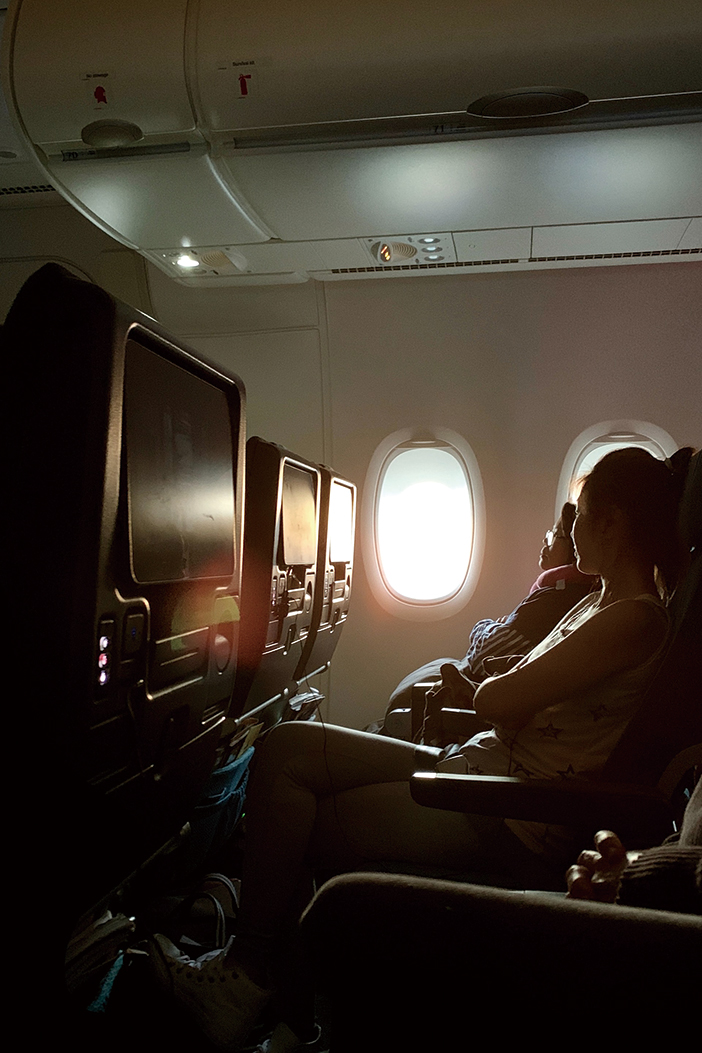I’m sure that like me, over the years your friends and family have regaled you with cautionary tales about lost luggage, being stuck abroad after missing a flight, getting robbed in a foreign city, or worse, maybe even suffering an injury and having to seek treatment at local hospitals. My automatic reaction to such stories is usually “that would never happen to me!” But the truth is, that, and much more could happen to us all. Contemplating worst-case-scenarios shouldn’t scare us out of a well-deserved annual vacay, but wouldn’t it be better to trade that constant low-level worry for the reassurance of knowing you will be protected should the worst happen? Let’s face facts. Unless you’re traveling within a country that offers universal healthcare, then without insurance you are very vulnerable in case of an emergency.
To help us on our way to a carefree travel experience this summer, we talked to Jean-Charles Herbert of Runxin Insurance to understand the ins and outs of travel insurance coverage.

Let’s face it. Travel insurance isn’t on the top of most people’s to-do list when planning a vacation…
First Things First
A good place to start is understanding what sorts of different travel insurance plans there are and how they actually work. These depend on the frequency, purpose, and destination of your travel. For example, single trip covers might be the most convenient for infrequent travelers and your annual family holiday. For frequent travelers, there are multi-travel covers that provide full coverage no matter the destination, for periods not exceeding 30 days. Companies can also cover their employees’ business trips under a group travel insurance plan.
What’s in It for Me?
A big misconception about travel insurance is it might get you a new suitcase or a new flight if your flight gets canceled last minute. But the main aim of travel insurance is to offer you comprehensive medical cover. Depending on your policy, this might include medical cover with no overall maximum limit, in and out-patient treatment, evacuation, and repatriation. Some policies even include a crisis psychologist in the case of a traumatic event like a mugging, facilitate a ‘compassionate visit’ from a family member or next of kin, and should the absolute worst happen, funeral arrangements and the repatriation of the deceased.
If medical coverage is the primary function of a travel insurance plan, secondary functions can range from coverage for baggage theft, damage or loss, baggage delay, passport or cash theft, personal
liability against property damage and bodily injury, to travel delays, missed flight connections, daily hospital benefits, and legal assistance in cases where it is needed. The third function of an insurance plan is generally to cover you in the event a trip has to be canceled due to acute illness, injury, or even death.
Yeah… Still Not Convinced!
No matter how prepared you are for your trip, there is always a chance that something could go wrong, so it’s essential to read the fine print and understand exactly what you will and won’t be covered for in the event of a medical emergency. For example, without health insurance or ample cash, Chinese and American healthcare providers are simply not obliged to treat you. Even so, American healthcare services are so exorbitant that most travel insurance policies actually exclude the US from their standard plans, meaning you’ll have to pay extra if you need coverage there. Then while China’s healthcare services are far cheaper than in the US, you could face other issues, such as the language barrier, which could prevent you from getting necessary care.
Extreme sports enthusiasts are also excluded from most travel insurance policies. Activities such as hiking above 3,000 meters or deep-sea diving will land you in the same category as travelers to America, needing special insurance covers. But it’s not all bad news! There are companies and products on offer for this special category of traveler, and all at competitive prices, it’s just a matter of doing your research beforehand.
In Short…
Whether you are traveling within China or exploring the world, having travel insurance should be as second nature as food and shelter, as having it can literally turn into a matter of life and death. It’s easy to know which plan works for you by directly contacting an insurance agent and getting a quote so that you and your family can have peace of mind to enjoy your holiday to the max, no matter what happens!
Tips for Finding the Right Coverage Plan
1. When traveling in China, it’s best to go for a local insurance company plan. Bilingual customer service agents are pretty much guaranteed for foreigners, and will be able to help translate for local services in a way that overseas insurers may not.
2. Before settling on a plan, talk to several insurance adjusters to compare plans and pricing. Be sure to match your cover to your planned activities e.g. get a package insurance plan if you’re planning a non-refundable trip such as a cruise.
3. Confirm whether your destination country requires travel insurance to allow you entry into the country. For example, the European Union requires all non-EU travelers to have valid travel insurance for the entire duration of their stay.
4. Cheaper is not always better. Make sure you check for loopholes in the coverage being offered before signing on the dotted like. It might be that the policy has a much lower coverage limit, or doesn’t cover certain crucial aspects of your trip at all.
KEEP READING: Medical insurance – Why You Need It, and How to Get It
Information for this article was provided by Jean-Charles Herbet,
Business Development Manager|Runxin Insurance Broker Beijing Branch.
Photos: Unsplash
 This article appeared in the beijingkids 2020 June issue
This article appeared in the beijingkids 2020 June issue




